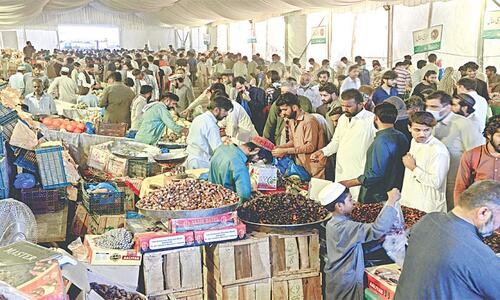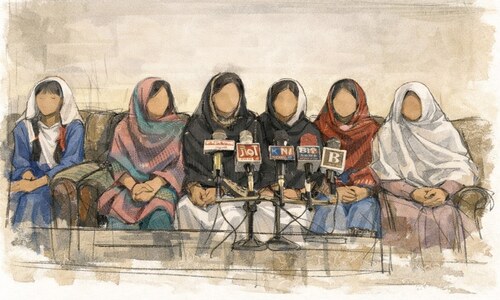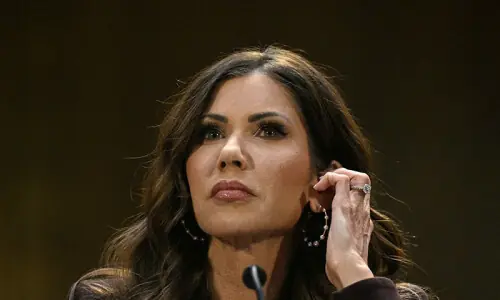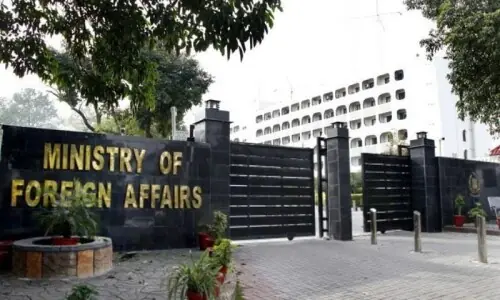With the dawn of modern times, the art of persuasion as represented by the classical disciplines of Oratory and Rhetoric underwent a decline in appreciation and value. Beyond the second quarter of the twentieth century, every grand, high-pitched monodrama, every thunderous staginess or full-lunged declamatory style appealing to the raw passions of the masses was being retired or looked down upon.
Radio and television broadcasting were replacing ageing and croaking men wallowing in grandiloquence. Over time, communication to the audience at large became highly intimate, chummy and personal, to the degree of a cousinly feeling. It turned into exquisite fireside chats, gentle, low-toned and soft-spoken.
The great academic of the spoken word, Allama Rasheed Turabi was acutely conscious of this whole changing dynamic. His was a know-how that was able to envisage not only the demands of the here and now, but also the ringing distinctive quality of a voice that could spellbind the rising generation of the unborn tomorrow.
To him, Demosthenes, Cicero, Abul Kalam Azad, the Right Honourable Srinavas Shastri, the Quaid-e-Azam Muhammad Ali Jinnah, Hadi Hasan, Bahadur Yar Jung, Churchill and a host of other orators the world over were great, precious and venerated names. Yet, there were moments when Turabi’s mind would treat all these names, by and large, as mere dead yesterdays. It was no other than Turabi himself who could brave the scrutiny of diamond-eyed spectators from all around.
Allama Rasheed Turabi, whose 50th death anniversary falls on December 18 this year, is remembered as one of the greatest ever religious scholars and orators
How did he electrify the dry intellectual atmosphere of people who were guided by glamourless faith and took a special delight in spurning materialism, and who invariably traversed the “holy jungle of transcendental metaphysics”? How did he stir the sluggish minds of the motley Muharram crowd to wonder, enchantment and to spellbinding spiritualism?
During the first 10 days of Muharram, he was able to assume the whole lifestyle of a dedicated mourner, joining the confraternity of those who had fallen on the pain of Karbala. This could remind one of Prophet Joseph, who was lost to home, and over the separation of whom, his father Prophet Jacob, as recorded by the Holy Quran, was so aggrieved that weeping and wailing to no end ultimately turned him blind.
But there was a great number in Turabi’s audience who would not subscribe to the theme of tear-shedding and lamentation. Arrayed against this non-elegiac stance was the seminal idea of Aristotelian “Catharsis”, or the purging of emotions, which had been nurtured for 1400 years, developing into a well-established doctrine of the Aal-i-Rasool [the family of the Prophet, peace be upon him].
Confronted by this dilemma, Rasheed Turabi kept his head and bent all his energies towards the greater good of the unity of the Muslim world, and did this without working himself into an undue lather of self-righteousness.
Without the slightest fear of contradiction, one can say that he devoted himself fully to the uphill task of bringing closer the two great streams of Muslim consciousness (Shia and Sunni). Muharram for him was an ideal period, when the art of persuasion could work miracles in terms of promoting uniformity in diversity.
Like a trial lawyer shouting at a witness, Turabi would then hold up a mirror to both the “fraternal” parties, and hammer home the great hinge-point, as represented by Prophet Muhammad (PBUH). In his endeavour to project the greatness of the Messenger of Allah as a cementing force, Rasheed Turabi outperformed and outclassed many a learned figure of this Subcontinent.
Yes, as an artist of the spoken word, he knew the ear is a gateway to the soul, but he equally realised that the ear of an angry young man can never be attuned to authoritative statements or to ex cathedra judgements, say from the throne of a pope.
This was the reason that his meaning-laden words never carried a meaningless or unwanted didactic strain. His sermons always accumulated immense pyramids of facts; and such was his hatred for overbearing commands from the pulpit and such was his natural love for logic and for good reason, that he preferred to wait until scores of facts would fall into line to prove his point.
Like a bee winging its way from flower to flower, Turabi could be seen pursuing diverse disciplines of knowledge, with the sole aim of marshalling them like a musical conductor. From categorical imperative to logical positivism in ethics, from cosmogony to phenomenology, from psychology of religion to general semantics, all were ranges he would scan with an effortless superiority.
And yet, his eyes were always glued on ontology, ie the branch of metaphysics that deals with the very nature of being. And when he would talk of the Hereafter with great passion, he would easily send a tingle down many a spine.
Or again, when he would touch the chord of piety as enunciated by the huqooq-ul-ebad (the rights of human beings), it was as if the listener had by mistake tampered with a faulty light switch, and had, in the bargain, received a sudden jolt up his arm.
The writer is a senior journalist
WHO WAS RASHEED TURABI?

Allama Rasheed Turabi was an eminent and distinguished Islamic scholar, an outstanding orator, poet and philosopher. Born on July 9, 1908 in Hyderabad Deccan, India, he also served as a member of the Hyderabad Assembly and in the All-India Muslim League. He migrated to Pakistan in 1949 and thereafter devoted himself exclusively to religious and scholarly work.
Educated at Aligarh, Allahabad and Osmania universities, the Allama did his Masters in philosophy and was also a brilliant scholar of Arabic and Persian. He attained mastery in religious thought through studying under the Grand Ayatollahs of Iran and Iraq, and was himself a great Muslim thinker. He made thousands of speeches, composed poetry and wrote scores of books and articles.
Allama Turabi died in Karachi on December 18, 1973, leaving behind an indelible impression on the intellectual history of Pakistan. On the 50th anniversary of his death, the Allama Rasheed Turabi Memorial Centre has launched his first official website on his life and times, turabiat.com.
Published in Dawn, EOS, December 17th, 2023


































